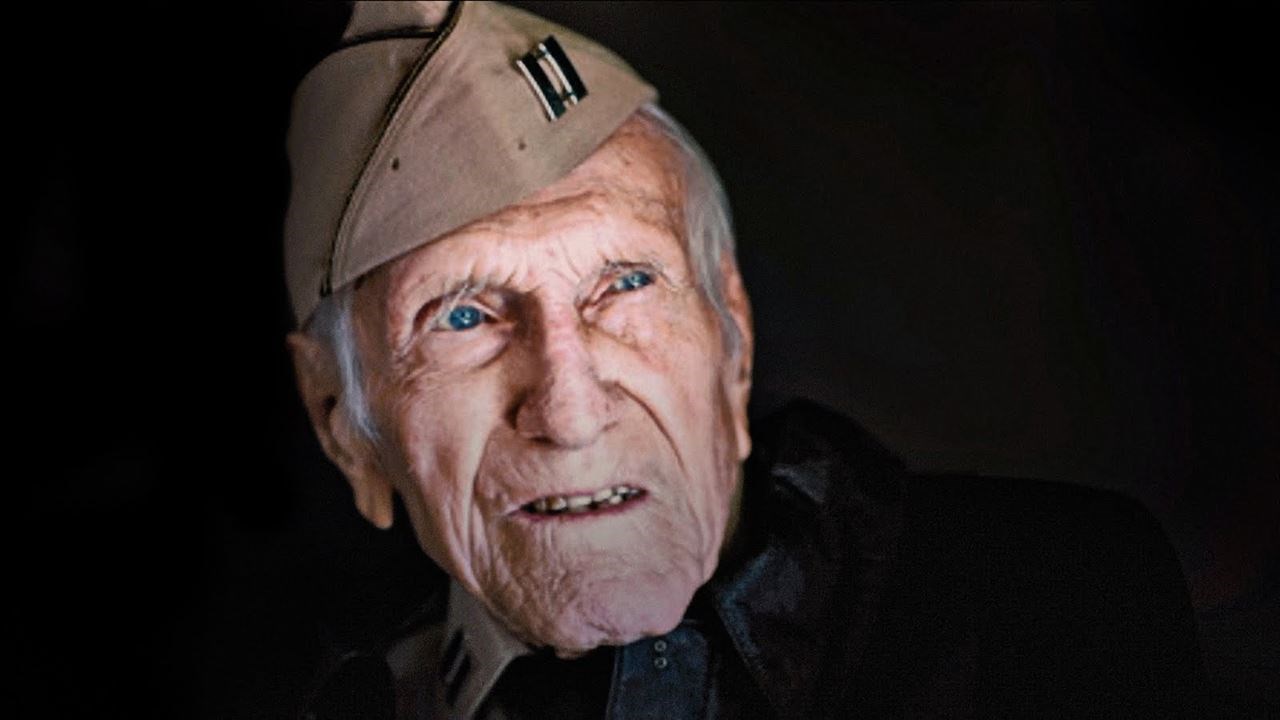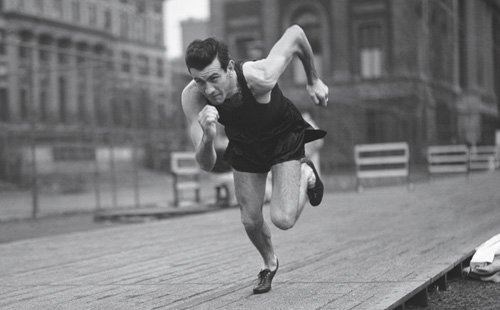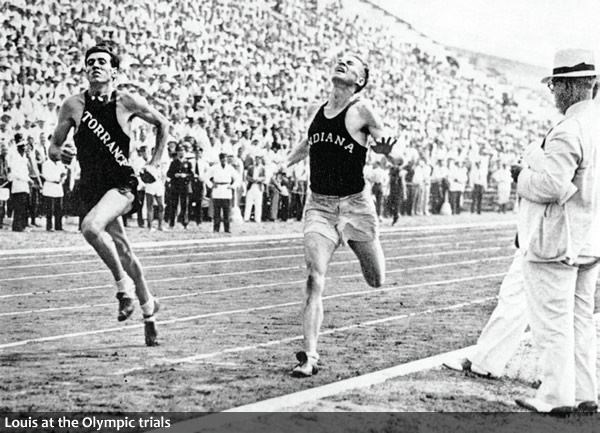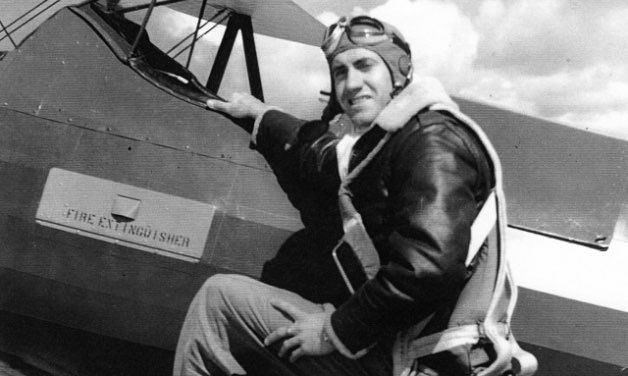The Adversity of Louis Zamperini - please add credit lines to your images, letter sent 4/19/2018
 Retired Louiehttps://elcaleidoscopiodelavida.com/2017/09/27/2826/Everybody has their own perception of a hero. Even though different people will have a different definition of a hero, everybody has their own definition. No matter how a hero is perceived, they stand out in a time of hardship and motivate others not to give up. Many people believe that heroes have triumphed over physical and mental hardship in their lives. Heroes are those who can see the light at the end of the tunnel even in the darkest of times. Heroes never give up because their values tell them otherwise. No matter the obstacle, heroes will always strive for success. Mental strength and physical resilience are important because they are needed to overcome challenging obstacles. Mental strength is important for not giving up. It is necessary for the long term challenges that seem like they never end. Physical resilience is important for the foreign aspect of a challenge. Physical resilience really comes through in a hero when an outside force is trying to break you down. This is no more apparent than with the life of Louis (Louie) Zamperini. Louis Zamperini showed remarkable resilience and mental strength through many of his experiences. From his track career, to being stranded in the ocean, to surviving a POW camp, Louis Zamperini teaches us all a lesson about the importance of mental strength and never giving up.
Retired Louiehttps://elcaleidoscopiodelavida.com/2017/09/27/2826/Everybody has their own perception of a hero. Even though different people will have a different definition of a hero, everybody has their own definition. No matter how a hero is perceived, they stand out in a time of hardship and motivate others not to give up. Many people believe that heroes have triumphed over physical and mental hardship in their lives. Heroes are those who can see the light at the end of the tunnel even in the darkest of times. Heroes never give up because their values tell them otherwise. No matter the obstacle, heroes will always strive for success. Mental strength and physical resilience are important because they are needed to overcome challenging obstacles. Mental strength is important for not giving up. It is necessary for the long term challenges that seem like they never end. Physical resilience is important for the foreign aspect of a challenge. Physical resilience really comes through in a hero when an outside force is trying to break you down. This is no more apparent than with the life of Louis (Louie) Zamperini. Louis Zamperini showed remarkable resilience and mental strength through many of his experiences. From his track career, to being stranded in the ocean, to surviving a POW camp, Louis Zamperini teaches us all a lesson about the importance of mental strength and never giving up.
 Louis training at USC.https://www.success.com/videos/youtube/in-his-words-louis-zamperini-on-life-after-pow Louis Zamperini endured several of the toughest mental challenges that someone can go through. Louie put himself to the test when he qualified for the 1936 Olympics in Berlin:“At the Berlin Olympics, Zamperini finished eighth in the 5000-meter race, but ran the fastest final lap of all the competitors in an unprecedented 56 seconds. His final push even grabbed the attention of Adolf Hitler who personally congratulated Zamperini after the race. Zamperini turned his attention to the 1940 Olympics”(Green). Despite the eighth place finish Louis Zamperini was still able to attract the attention of powerful figures through his strong finale. He used his mental strength to not give up and complete the race with a fast time. After his success on the track Louis Zamperini enlisted as a bombardier for the Navy. From here his mental strength would only get stronger. On a search and rescue mission Louie’s plane engines failed and he crashed into the ocean. “...The three men remained at sea for 47 days, during which one crewman, Francis McNamara, died and was buried at sea. Zamperini and the other survivor, Russell Phillips, used their bare hands to kill birds that landed on their raft, eating them and using the entrails as bait to catch a shark and several smaller fish, which they ate raw. Sharks threatened Zamperini and Phillips as they hid under the raft to escape a strafing attack from Japanese planes. After drifting for 2,000 miles, they were picked up by a Japanese boat and taken to Wotje, one of the Marshall Islands…”(Gale 2018)
Louis training at USC.https://www.success.com/videos/youtube/in-his-words-louis-zamperini-on-life-after-pow Louis Zamperini endured several of the toughest mental challenges that someone can go through. Louie put himself to the test when he qualified for the 1936 Olympics in Berlin:“At the Berlin Olympics, Zamperini finished eighth in the 5000-meter race, but ran the fastest final lap of all the competitors in an unprecedented 56 seconds. His final push even grabbed the attention of Adolf Hitler who personally congratulated Zamperini after the race. Zamperini turned his attention to the 1940 Olympics”(Green). Despite the eighth place finish Louis Zamperini was still able to attract the attention of powerful figures through his strong finale. He used his mental strength to not give up and complete the race with a fast time. After his success on the track Louis Zamperini enlisted as a bombardier for the Navy. From here his mental strength would only get stronger. On a search and rescue mission Louie’s plane engines failed and he crashed into the ocean. “...The three men remained at sea for 47 days, during which one crewman, Francis McNamara, died and was buried at sea. Zamperini and the other survivor, Russell Phillips, used their bare hands to kill birds that landed on their raft, eating them and using the entrails as bait to catch a shark and several smaller fish, which they ate raw. Sharks threatened Zamperini and Phillips as they hid under the raft to escape a strafing attack from Japanese planes. After drifting for 2,000 miles, they were picked up by a Japanese boat and taken to Wotje, one of the Marshall Islands…”(Gale 2018)
 Louie at the olympc trialshttp://www.homecomingmagazine.com/article/a-circle-unbroken-the-amazing-life-of-louis-zamperini/As strong as his mental strength was, he needed physical resilience to help him through his challenges. Despite his horrible conditions on the life raft, Zamperini had yet to see the worst he would go through. “Rescued and arrested by the Japanese, Zamperini and Phillips were put in different prisoner of war (POW) camps and regularly moved between camps. Given Zamperini's status as an athlete, the Japanese wanted to use him as a propaganda tool, but he refused to denounce the United States. In one camp Zamperini was brutalized by Mutsuhiro Watanabe, a guard”(Gale 2016) Once arriving at the POW camp, Zamperini's conditions got much worse. He was beaten and starved by the enemy who wanted nothing more than to see the Allies dead. However, Zamperini refused to be used by the enemy. He gave up a nice, comfortable lifestyle because he refused to promote Japanese propaganda. He was transferred back to a POW camp where he was savagely beaten and forced into doing unimaginable things. One guard in particular resented him especially because of his fame, Mutsuhiro Watanabe nicknamed “The Bird”. While at the POW camps, Louie was subject of many cruel punishments. “His Japanese captors used him for medical experiments, including one in which a green liquid containing dengue fever virus was injected. Zamperini and Phillips were interrogated and beaten. After 42 days, Zamperini was transferred to a secret Japanese interrogation center at Ofuna, near Yokohama”(Gale 2018) This was not the end of the torture however. “... He was sent to a camp run by Japanese sergeant Matsuhiro Watanabe, who tortured him, keeping him on the brink of death. At one point he had to hold a large wooden beam over his head for 37 minutes. Watanabe then punched him in the stomach, and the beam fell, knocking Zamperini out. He was moved to another camp only to discover that Watanabe had been posted to this new location, an experience he called the worst moment of his life”(Gale 2018) At one point he was forced to hold a log over his head or else he would get shot. Zamperini was already weakened from the starvation and other beatings and back breaking work. Despite this, he held strong and held the log up long enough for The Bird to get frustrated and let him live. Throughout his life, Zamperini showed resilience and the POW camp is one of the most extreme examples. Even through the brutal beatings and the horrible conditions he made it through and back in one piece. Louis Zamperini’s resilience led him to survive the brutal POW camps and return home.
Louie at the olympc trialshttp://www.homecomingmagazine.com/article/a-circle-unbroken-the-amazing-life-of-louis-zamperini/As strong as his mental strength was, he needed physical resilience to help him through his challenges. Despite his horrible conditions on the life raft, Zamperini had yet to see the worst he would go through. “Rescued and arrested by the Japanese, Zamperini and Phillips were put in different prisoner of war (POW) camps and regularly moved between camps. Given Zamperini's status as an athlete, the Japanese wanted to use him as a propaganda tool, but he refused to denounce the United States. In one camp Zamperini was brutalized by Mutsuhiro Watanabe, a guard”(Gale 2016) Once arriving at the POW camp, Zamperini's conditions got much worse. He was beaten and starved by the enemy who wanted nothing more than to see the Allies dead. However, Zamperini refused to be used by the enemy. He gave up a nice, comfortable lifestyle because he refused to promote Japanese propaganda. He was transferred back to a POW camp where he was savagely beaten and forced into doing unimaginable things. One guard in particular resented him especially because of his fame, Mutsuhiro Watanabe nicknamed “The Bird”. While at the POW camps, Louie was subject of many cruel punishments. “His Japanese captors used him for medical experiments, including one in which a green liquid containing dengue fever virus was injected. Zamperini and Phillips were interrogated and beaten. After 42 days, Zamperini was transferred to a secret Japanese interrogation center at Ofuna, near Yokohama”(Gale 2018) This was not the end of the torture however. “... He was sent to a camp run by Japanese sergeant Matsuhiro Watanabe, who tortured him, keeping him on the brink of death. At one point he had to hold a large wooden beam over his head for 37 minutes. Watanabe then punched him in the stomach, and the beam fell, knocking Zamperini out. He was moved to another camp only to discover that Watanabe had been posted to this new location, an experience he called the worst moment of his life”(Gale 2018) At one point he was forced to hold a log over his head or else he would get shot. Zamperini was already weakened from the starvation and other beatings and back breaking work. Despite this, he held strong and held the log up long enough for The Bird to get frustrated and let him live. Throughout his life, Zamperini showed resilience and the POW camp is one of the most extreme examples. Even through the brutal beatings and the horrible conditions he made it through and back in one piece. Louis Zamperini’s resilience led him to survive the brutal POW camps and return home.
 Zamperini posing in front of a fighter planehttp://www.swiei.com/index.php/2017/11/29/self-esteem-critical-successful-leadership/Louis Zamperini has gone through some of the worst experiences that anyone at that time could have gone through. But through his mental strength and physical resilience he was able to endure and survive. Zamperini used his mental strength to get him to the Olympics. And even though he didn’t win a medal, his effort was able to attract the attention of several famous people. He joined the Army Air Corps after his Olympic career as a bombardier. When his plane crashed he had to survive for weeks thousands of miles away from any human contact. He had to use every last bit of his mental strength to endure the horrible conditions. Louie still had a long way to go before he could make it home. After being captured by the Japanese he needed to muster up every last bit of strength and resilience to survive these morbid conditions and the savage beatings of the POW camps. Inspirational is one of the many words that describe Louis Zamperini. Aspiring track stars can look up to Zamperini and see the importance of endurance and how essential it is towards success. He can teach us all a lesson of how important mental strength is through his time stranded in a lifeboat. And perhaps the biggest lesson we can learn from Louis Zamperini is the importance of resilience in the face of adversity through his horrible life at the POW camps. Although Louis Zamperini is not with us today, we can look at his legacy of endurance, mental strength, and physical resilience and try to emulate the hero he was.
Zamperini posing in front of a fighter planehttp://www.swiei.com/index.php/2017/11/29/self-esteem-critical-successful-leadership/Louis Zamperini has gone through some of the worst experiences that anyone at that time could have gone through. But through his mental strength and physical resilience he was able to endure and survive. Zamperini used his mental strength to get him to the Olympics. And even though he didn’t win a medal, his effort was able to attract the attention of several famous people. He joined the Army Air Corps after his Olympic career as a bombardier. When his plane crashed he had to survive for weeks thousands of miles away from any human contact. He had to use every last bit of his mental strength to endure the horrible conditions. Louie still had a long way to go before he could make it home. After being captured by the Japanese he needed to muster up every last bit of strength and resilience to survive these morbid conditions and the savage beatings of the POW camps. Inspirational is one of the many words that describe Louis Zamperini. Aspiring track stars can look up to Zamperini and see the importance of endurance and how essential it is towards success. He can teach us all a lesson of how important mental strength is through his time stranded in a lifeboat. And perhaps the biggest lesson we can learn from Louis Zamperini is the importance of resilience in the face of adversity through his horrible life at the POW camps. Although Louis Zamperini is not with us today, we can look at his legacy of endurance, mental strength, and physical resilience and try to emulate the hero he was.
Works Cited
Green, Richard. “Louis Zamperini: The Story of a True American Hero.” National Archives and Records Administration, National Archives and Records Administration, 24 Dec. 2014, unwritten-record.blogs.archives.gov/2014/12/24/louis-zamperini-the-story-of-a-true-american-hero/.
"Louis Zamperini." Encyclopedia of World Biography, vol. 36, Gale, 2016. Student Resources In Context, https://link.galegroup.com/apps/doc/K1631010553/SUIC?u=powa9245&sid=SUIC&xid=f8b2bcd2. Accessed 26 Mar. 2018.
"Louis Zamperini." Newsmakers, vol. 1, Gale, 2016. Biography In Context, https://link.galegroup.com/apps/doc/K1618006451/BIC?u=powa9245&sid=BIC&xid=cb107b78. Accessed 27 Mar. 2018.
Page created on 4/17/2018 4:20:27 PM
Last edited 4/21/2018 6:51:00 PM
